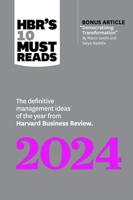Publisher's Synopsis
It is well known that product differentiation increases both prices and profits, other things equal. What is less well understood is how the distribution of consumer preferences affects firms' incentives to differentiate their products. This book focuses on the incentive of firms to reveal truthful information about product attributes. Because consumers' preferences differ, the revelation of this information differentiates products. The profitability of inducing this differentiation is shown to be related to three aspects of the information; the size of the "targeted" group (i.e., the group who finds these attributes desirable), the magnitude of the perceived change in attributes induced by the information, and whether the information is "symmetric." In particular, I show that the profits associated with information increase more than proportionately with the size of the targeted group. This implies that information will tend to be provided for large groups, even if there are no economies of scale in producing that information. The analysis also shows that in some circumstances, the revelation of asymmetric information can actually reduce the firm's profit.









